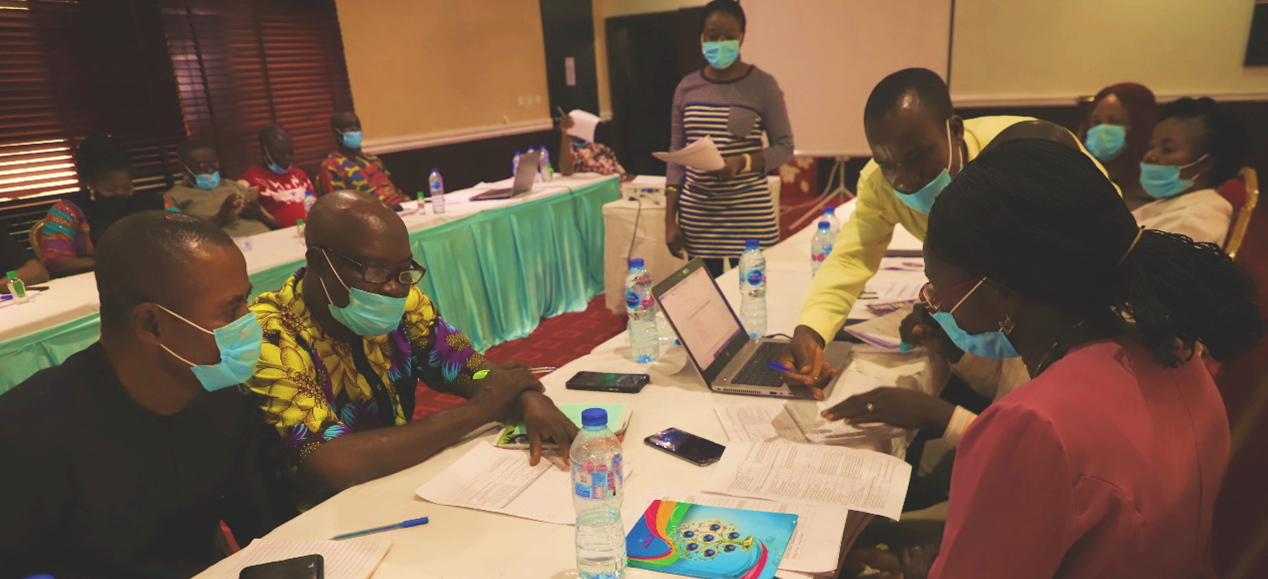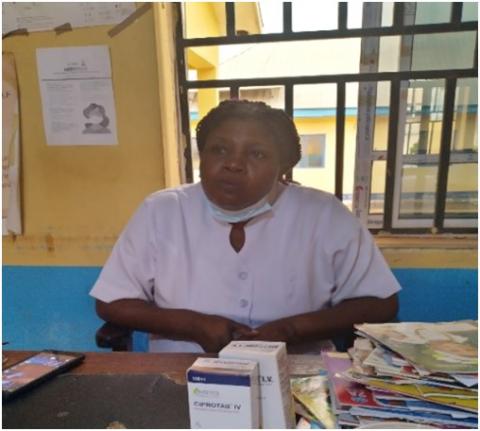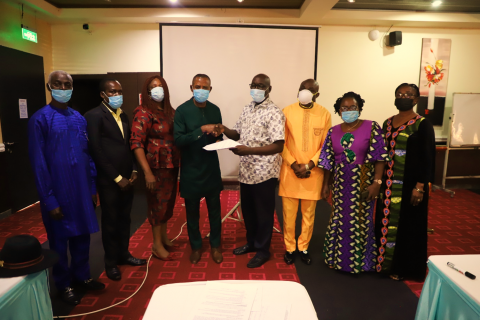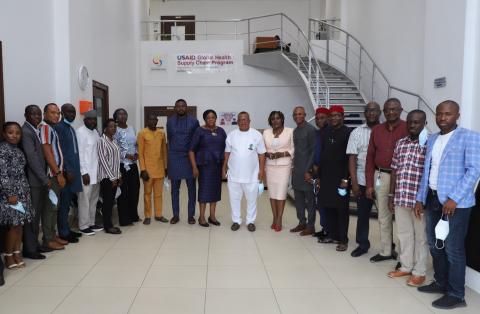A DRF works to strengthen the health system closer to the patient by creating sustainable processes and infrastructure further down the supply chain to make quality-assured health supplies consistently available at state and local levels. The importance and impact of these efforts are reflected by nurse and midwife Elizabeth Odo, whose state has already benefited from DRF implementation,
“With the DRF, in the event of emergency in the middle of night, there is no need to panic because the drugs are available. This helps increase patient trust and flow.”
The USAID Global Health Supply Chain Program-Procurement and Supply Management (GHSC-PSM) project recently partnered with Ebonyi State government to facilitate a series of pre-implementation activities for their DRF. The process kicked off with a workshop in November 2021, where GHSC-PSM convened state leaders to build consensus on the guiding principles of the Ebonyi DRF. 24 participants, including directors and representatives from the State Ministry of Health, State Ministry of Budget, State Central Medical Warehouse, primary and secondary health facilities, the National Council for Women Societies Nigeria, traditional leaders, and religious leaders met “to ensure there is representation in the inputs and to establish acceptable guidelines for a sustainable DRF in Ebonyi State,” said Dr. Mariya Saleh, GHSC-PSM Nigeria Director for Reproductive and Maternal, Newborn and Child Health (MNCH).
USAID Logistics and Commodities Program Manager, Health, Population and Nutrition Office, Emmanuel Ogwuche kicked off the workshop by emphasizing the Nigerian government’s role in leading DRF activities and GHSC-PSM’s supporting role, providing technical assistance that will allow the state to fully take over the management of its supply chain. He commended the strong community representation, including Ebonyi State President of the National Council for Women Societies Nigeria, Head of the Religious Leaders/Traditional Rulers, and Chairman of the Ward Development Committee.
The group used the workshop to share and review information—such as the State Drugs and Health Commodities Management Agency Law—deliberate, and finalize the Ebonyi Standard Operating Procedures (SOP), taking into account governing structures at both state and health facility levels as well as other elements of the DRF scheme. The group also discussed the structure of the DRF governing committee, which would be established later on in the DRF process. As was done in other Nigerian states supported by GHSC-PSM, the SOP developed during this phase will be used to establish DRF governing structures and guide training, warehouse and data system improvements, quantification processes, procurement and distribution of health supplies.



